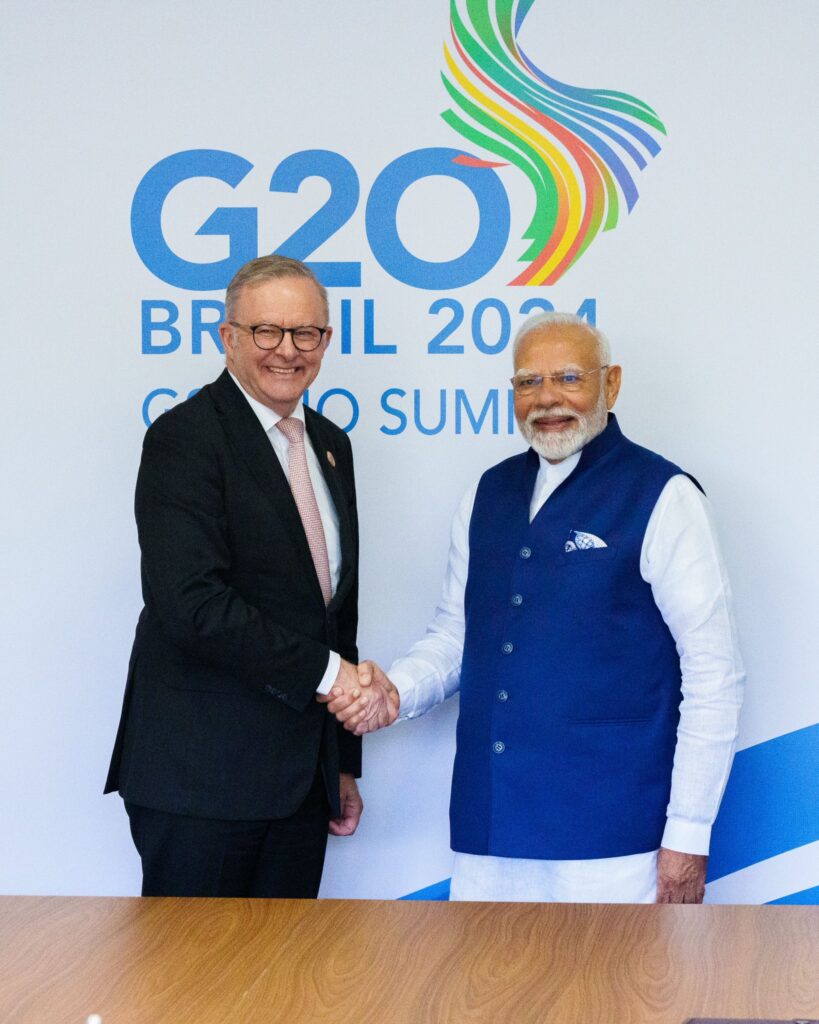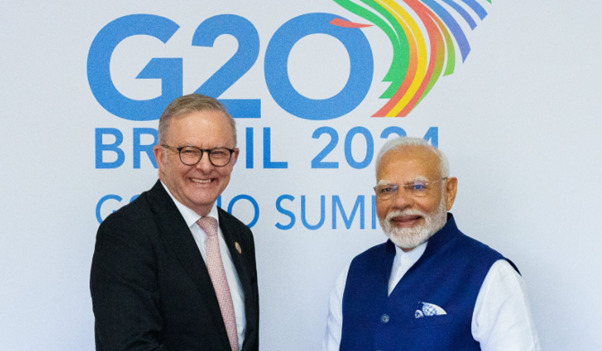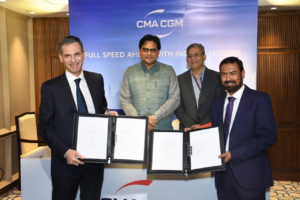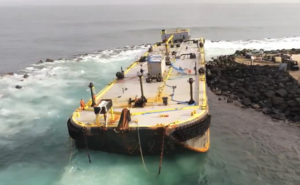
Australia will partner with India in the renewable energy sector, as announced by the Prime Minister of Australia Anthony Albanese from Rio de Janeiro on the sidelines of the G20 Summit in Brazil. The two countries will also explore new opportunities of cooperation in ship building, defence industry, critical minerals, space and sports.
This new partnership will boost two-way investment in the renewable energy sectors like solar, green hydrogen and the renewables workforce.
“Today I am delighted to welcome the launch of the India-Australia Renewable Energy Partnership. This is a significant milestone in our cooperation. Our new partnership will boost two-way investment in renewable energy projects like solar PV manufacturing, battery and mineral processing, green hydrogen and green iron,” commented the prime minister.
India’s prime minister Narendra Modi and the prime minister Anthony Albanese have also committed to developing a joint maritime security collaboration roadmap, including to deepen maritime domain awareness.
Anthony Albanese has met leaders from the world’s major economies at the G20 Leaders’ Summit in Brazil. The Prime Minister hosted Prime Minister Modi for the 2nd Australia-India Annual Summit and held a range of engagements with other leaders in the sidelines of the G20 to discuss bilateral priorities and advance Australia’s interests.
“Defence industry, critical minerals, renewable energy, ship building, space and sports are areas where we will work on exploring new opportunities of cooperation,” according to Modi.
Meanwhile, delegates and speakers from more than 60 nations gathered for a two-day maritime dialogue in South Asia’s Largest Maritime Thought Leadership Forum, Sagarmanthan.
The dialogue underscores India’s strategic role in global trade, with a 7,500 kilometers coastline and strategic islands that bolster its maritime potential.
The event also highlights the nation’s commitment to the decarbonisation of the maritime sector through green initiatives such as the Harit Sagar Guidelines and the National Green Hydrogen Mission.
“Recognising India’s maritime potential and its significance for economic growth, our government has implemented crucial policy measures for the ‘Blue and Ocean-based Economy’ over the last decade. Our participation in initiatives like the India-Middle East-Europe Economic Corridor (IMEEC) and the International North-South Transport Corridor underscores our commitment to strengthening global trade partnerships. We are also preparing to build future ships that run on clean fuels like ammonia, hydrogen, and electric, capable of traversing brown, green, and blue waters,” noted India’s Union Minister of Ports, Shipping & Waterways (MoPSW), Sarbananda Sonowal.
On the sidelines of Sagarmanthan, Sarbananda Sonowal participated in a bilateral meeting with the Minister of Maritime Affairs and Insular Policy of Greece, Christos Stylianides.
The two leaders discussed an array of topics and agreed to deepen the maritime relationship between the two countries.
Both the leaders agreed to expand trade from the existing US$1.94bn to doubling it by focussing on broadening, increasing, and balancing by 2030.



